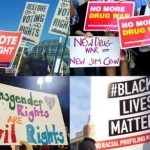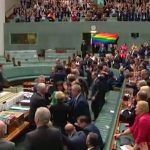Documentarian Fan Popo’s latest endeavor about the lives of six mothers and their gay or lesbian children has been pulled offline by state officials for reasons that have not been officially announced. Mama Rainbow, a modest success with over 100,000 views on such popular video portals as YouKu.com. and 56.com, is part of an unofficial effort by the State Administration of Press, Publication, Radio, Film and Television, the Chinese media regulatory agency, to “clean vulgar content from the Internet.”
According to a report in Caixin Online, “On February 12, Fan filed an application that sought to have the media watchdog “provide the legal basis for the decision.” Rules for information disclosure mean the government must respond shortly after the major Spring Festival holiday, Wang said. The week-long holiday that is also known as Chinese New Year ended Feb. 24. Fan asserted, “For a long time, China has treated sexual minorities as equal to illegal practices like prostitution, gambling and drug trafficking, and believes gay love is against social morality. Discrimination against gay and lesbians is common in China’s law enforcement,” he ruefully added.
Fan’s request for the disclosure of information points to “the question of the boundary of regulatory power,” Wang said. “The government can’t implement law enforcement randomly. Any regulation limiting a citizen’s freedom and rights should be disclosed beforehand and be made transparent to the public,” he added.
Fan Popo is best known as a gay filmmaker, writer and activist. Born in 1985, he graduated from the Beijing Film Academy. He published “Happy Together: Complete Record of a Hundred Queer Films” (Beifang Wenyi Press, 2007). He received the third prize in the LGBT Research Paper Prize of the Chi-Heng Foundation, the second prize in the Sina.com’s prize for online video and the Prism Prize of the 22nd Hong Kong Lesbian and Gay Film Festival.
He directs the China Queer Film Festival Tour, which has traveled to over 20 major cities in China since 2008. He participated in international exchanges in Taipei, Copenhagen, Los Angeles and other places. His documentary works include: The Good Days, Taipei: city of rainbow, New Beijing, New Marriage, Chinese Close, Paper House and Be a Woman.
Mama Rainbow opens with a series of street interviews with passersby about their feelings on homosexuality. The filmmaker follows this with a more pointed question, one which leads us into the heart of Mama Rainbow: “What if your son or daughter told you they were gay?” In the film, we meet six different Chinese mothers, all the parents of gay and lesbian children, who share their experiences with the camera. Though the specifics of their stories are all quite different, each of the mothers experience their own version of a “coming out” tale—recognizing, acknowledging, and accepting their children’s sexualities. Mama Rainbow paints a hopeful portrait of the slowly changing mindset of a culture where the fear of persecution and rejection still makes coming out and living openly a great challenge.
Meanwhile, the UN Development Program said in an August report that lesbians, gays, bisexuals and transgender people in China are not protected from discrimination by law. The report cited a survey from a year earlier that found that more than two-thirds of some 3,490 people said they cannot accept gay people.















